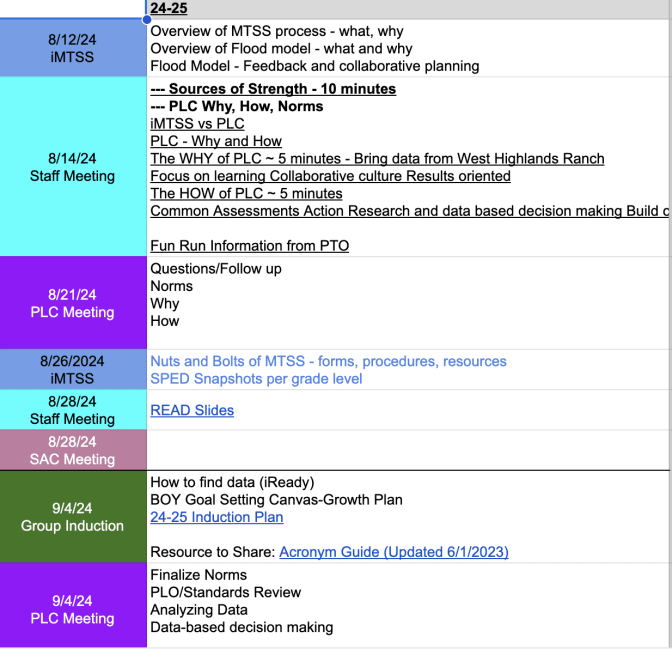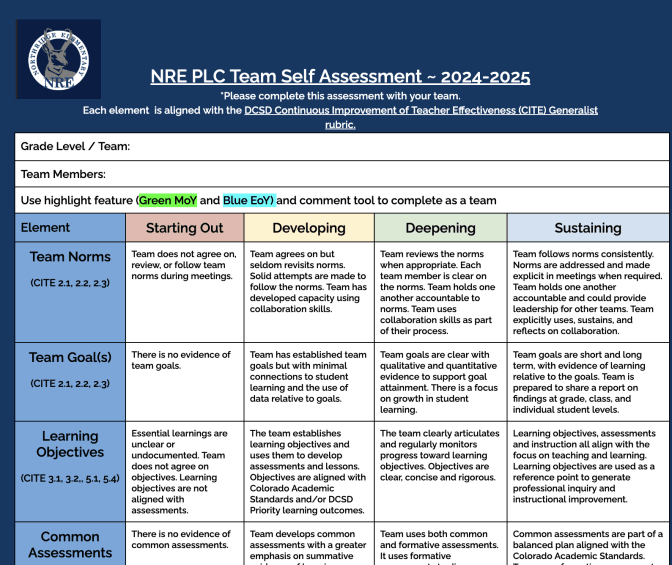Standard I
Principals demonstrate organizational leadership by strategically developing a vision and mission, leading change, enhancing the capacity of personnel, distributing resources, and aligning systems of communication for continuous school improvement.
Standard II
Principals demonstrate inclusive leadership practices that foster a positive school culture and promote safety and equity for all students, staff, and community.
Standard III
Principals demonstrate instructional leadership by: aligning curriculum, instruction and assessment; supporting professional learning; conducting observations; providing actionable feedback; and holding staff accountable for student outcomes.
EL QUALITY STANDARD 5.9: Educators are knowledgeable about CLD populations.
ELL 5.10 Quality Standard II: Educators should be knowledgeable in first and second language acquisition.
ELL 5.11 Quality Standard III: Educators should understand literacy development for CLD students.
EL 5.12 Quality Standard IV: Educators are knowledgeable in the teaching strategies, including methods, materials, and assessment for CLD students.







